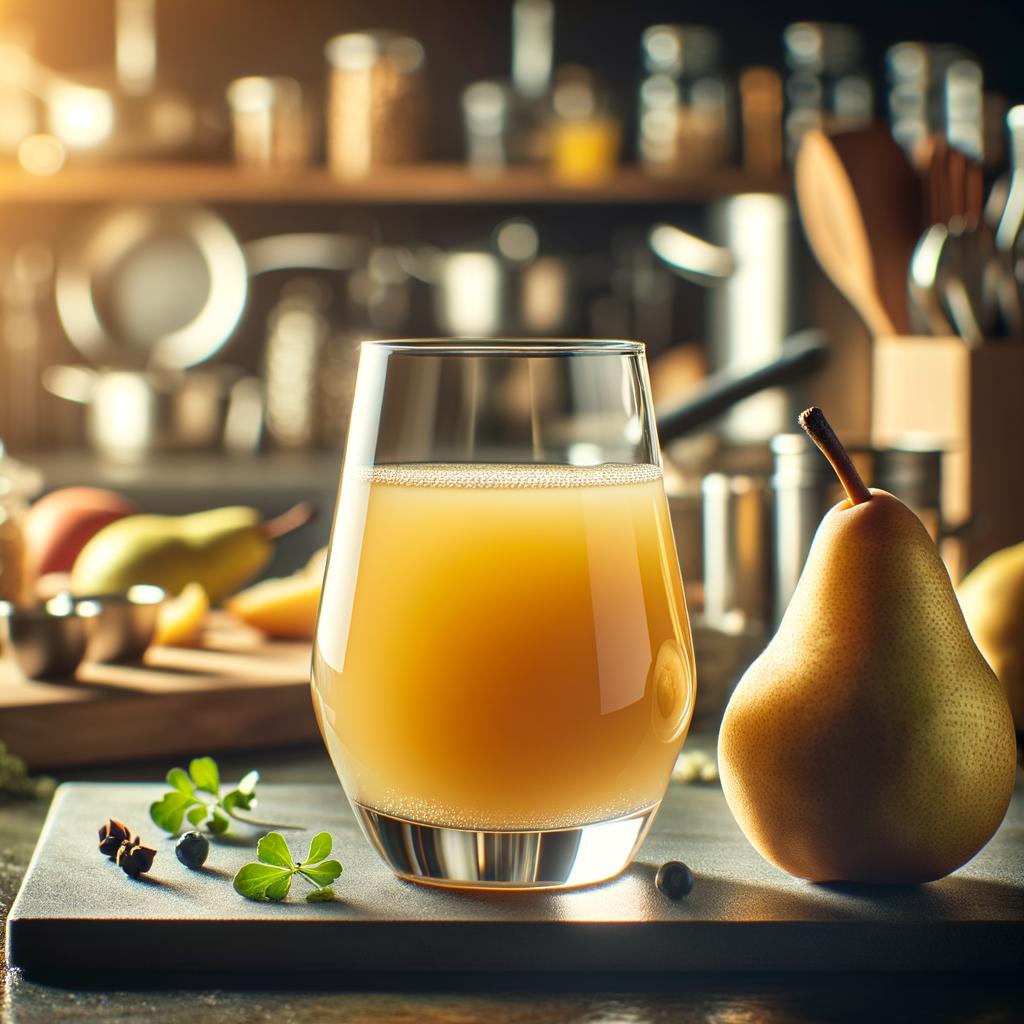Pear Juice

Description
Pear juice is a delightful nectar, squeezed from the succulent flesh of ripe pears. It boasts a gentle, sweet flavor that is slightly floral, with a hint of tartness that tickles the palate. The juice is typically a vibrant, golden hue, and its texture is smooth and velvety, a touch thicker than apple juice. The most distinctive characteristic of pear juice is its subtle, aromatic essence, which sets it apart from other fruit juices. It's like a whispered secret from nature, a testament to the pear's humble elegance.
Primary Uses
Pear juice is a versatile ingredient in the culinary world. It is often consumed on its own, chilled, and served in a tall glass for a refreshing drink. It's also a popular component in fruit cocktails, smoothies, and is even used to sweeten tea. In cooking, pear juice is used in sauces, marinades, and dressings, adding a sweet and tangy flavor that enhances the taste of various dishes.
In the world of baking, pear juice is used in cakes, muffins, and pastries, where it lends moisture and a delicate, fruity flavor. It's also used in the production of certain types of cider and fermented beverages. Beyond its culinary uses, pear juice has been used in traditional medicine for its soothing properties, particularly in treating ailments related to digestion.
History
The history of pear juice is as rich and nuanced as its flavor. Pears have been cultivated for over 4000 years, originating in the regions of Eastern Europe and Western Asia. The juice was likely consumed as soon as humans discovered the sweet, refreshing liquid that could be extracted from this bountiful fruit.
In ancient Greece, pears and their juice were highly valued for their healing properties, and they were often used in remedies by Hippocrates, the father of medicine. Over time, the popularity of pears and their juice spread throughout Europe and the New World, with its use evolving and adapting to the culinary traditions of each culture. There are many folk tales and myths associated with pears, often symbolizing prosperity, health, and longevity.
Nutritional Information
Pear juice is not only delicious but also packed with nutritional benefits. It is rich in vitamin C, potassium, and essential dietary fiber. It also contains smaller amounts of vitamins A, E, K, and several B vitamins.
The juice is a good source of antioxidants, which can help protect the body against oxidative stress and inflammation. It has a lower glycemic index than many other fruit juices, meaning it can provide a more steady energy release and is less likely to spike blood sugar levels.
Compared to apple juice, pear juice generally contains more fiber and fewer calories, making it a healthier choice for those watching their caloric intake. However, like all fruit juices, it should be consumed in moderation due to its natural sugar content. The sweet, nourishing nectar of pear juice is a testament to nature's generosity, a gift that has been enjoyed and celebrated throughout history.

